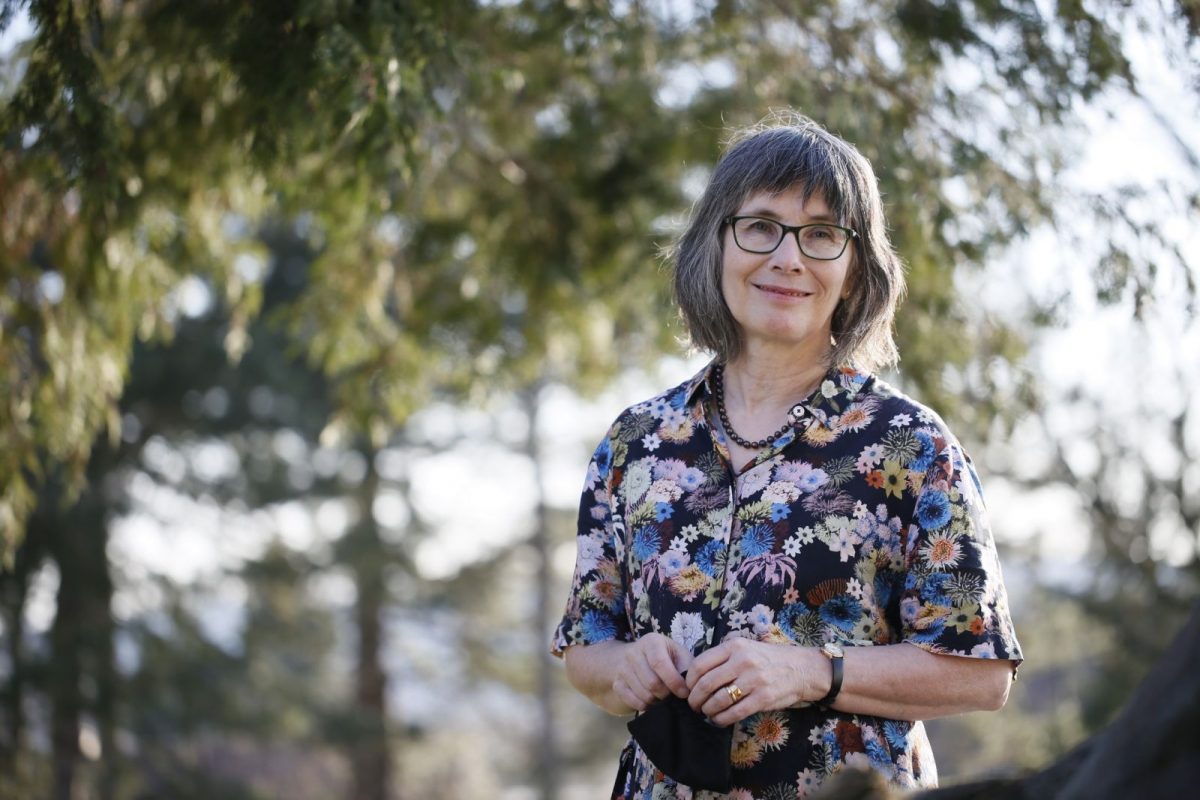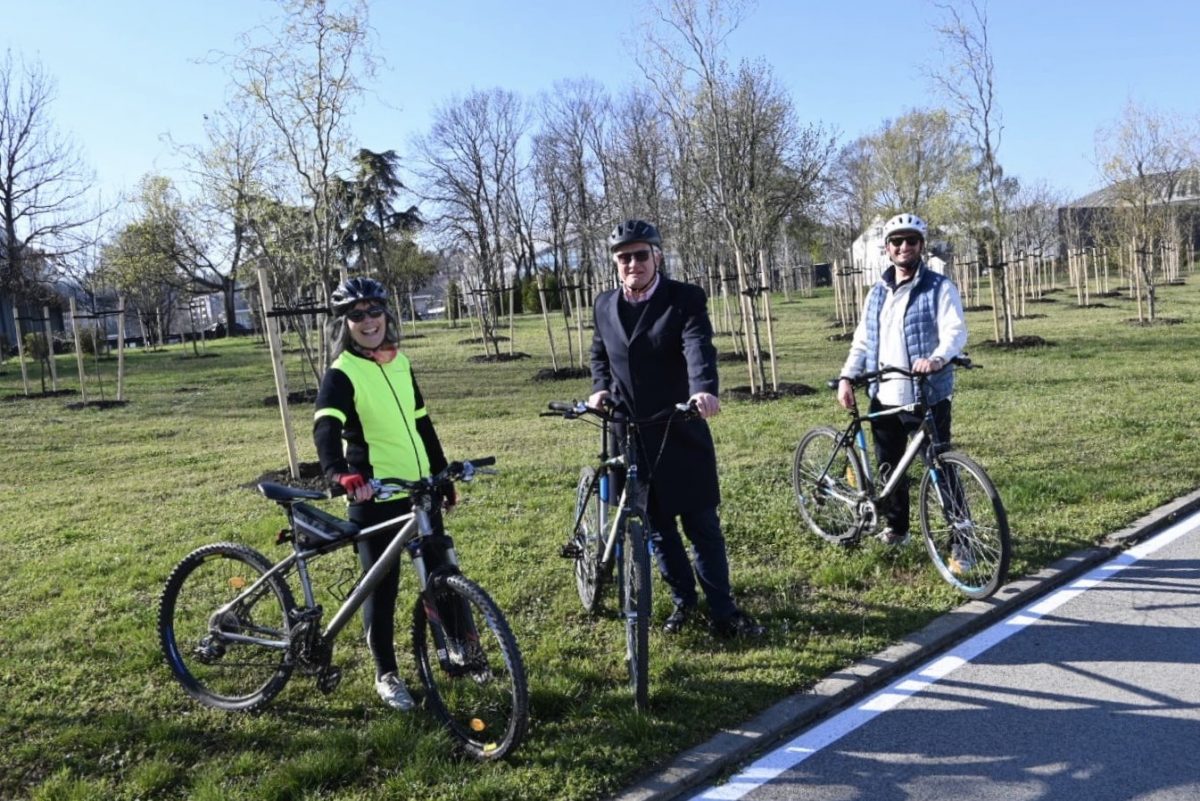We are actively working with the Serbian government and other local partners on joint projects designed to enhance regional stability and security, prosperity and trade
The UK and Serbia share a long history of cooperation, with bilateral relations first established 184 years ago. My ambition upon arriving here as UK ambassador in Belgrade was to make our present day relationship stronger and more forward looking. I am pleased to say that political leaders in both countries support that same ambition.

Bilateral relations between the Republic of Serbia and the United Kingdom are good, as is the cooperation between the two countries. How can these relations improve further?
Our countries share some common challenges, for example when it comes to the online world and, say, digitalisation of public services. In other areas, the UK can bring the experience of having addressed challenges that Serbia is now facing, for example in the sphere of energy and the environment. I hope that cooperation in the fields of science and technology will become increasingly important in our relationship. Climate change and the global pandemic have shown how critical scientific cooperation is for a successful global response. The international team at Oxford University that developed the Oxford AstraZeneca vaccine included some young scientists from Serbia.
The UK has been a significant contributor of technical support and capacity building projects through our Good Governance Fund to bring about positive change to the lives of ordinary citizens. We have supported the Serbian government in implementing projects surrounding cadastre reform, e-Bebe… I am also proud of the transformative ‘21st Century School’ programme implemented by the British Council. It is fantastic to see so many girls among the students developing innovative uses for their new coding skills: the women scientists of the future.
“Both the UK and Serbia can both be proud of our vaccine roll-out programmes”
In the modern world, trade is an integral part of international relationships; promoting trade and investment is an important role for modern embassies. Our trade resources in the region have doubled in the last two years and we are looking at more strategic cooperation on the trade front. This goal is supported by PM Johnson’s appointment of Martin Vickers MP as the Trade Envoy for the WB, as well as the successful (re)launch of the BSCC here and in London.
UK’s export credit agency, UK Export Finance, has last year doubled its country cap for Serbia to £4bn for various infrastructure projects, and I see great potential for cooperation for example in energy, environment, and transport. We might for example single out rail as an ambitious development point – and one where I take a personal interest having first visited Belgrade by train in the 1980s! As a country with the oldest rail network and the oldest underground in the world, the UK is well positioned to provide support. We are confident that we can bring unique expertise and experience to major projects like the Belgrade Metro.
What were your biggest challenges at the beginning of your term and what results would you like to single out after being the British ambassador to Serbia for nearly two years now?
I arrived to Belgrade just before the pandemic started, so the biggest challenges I have faced so far are linked to that. Keeping my staff and their families safe and my Embassy working has been the top of my agenda. The past year and a half has shown how resilient and creative we can be in the face of incredible uncertainty and disruption to normal regimes. Like everyone else, I have had to rely on technology to talk to people – and I haven’t been able to travel as much as I would have liked.
I am grateful though for the practical support we have received throughout the Serbian Foreign Ministry, most recently with COVID vaccinations. )
Even as we tackle the pandemic, we know that climate change is one of the greatest challenges facing our planet. I am very glad that this has risen up the Serbian agenda and that Serbia has set out an ambition to tackle environmental problems and decarbonise the economy.
Tackling climate change and protecting the environment needs an international effort. Later this year the UK is due to host the major UN Climate Change Conference COP 26 in Glasgow. The UK is already leading the way and has committed to a target of net zero carbon emissions by 2050 and to phasing out new petrol vehicles by 2030. Our Government has committed to creating and supporting up to 250,000 “green jobs” in the UK. Greening our economies and building a lower carbon future is a regular topic of discussion in my meetings with the Serbian Government, and it was on the agenda for the recent bilateral Strategic Dialogue between senior officials from both capitals.
Our two countries have recently signed the Partnership, Trade and Cooperation Agreement. How does this agreement contribute to the development of further trade relations?
The agreement sets out both countries’ ambitions for a future relationship, including the strengthening of political, economic, security and cultural ties, and reaffirming the UK’s support for governance reform in Serbia that will safeguard its competitive business environment and open, democratic society.
Our bilateral trade has doubled over the past 10 years, and we are strongly committed to building on this. Trade Minister Graham Stuart recently visited Serbia and met with Serbian Ministers to discuss potentials for strengthening our relationship. This was the first visit by a UK trade minister to this country in the last twenty years, and I think that send a pretty clear message on how committed we are to deepening our economic ties with Serbia.
Government reforms have been instrumental in creating a more attractive environment for international investment. Big UK companies such as Unilever, AstraZeneca and JCB are having success here, but there is much room for growth.
“I have especially enjoyed cycling along your great rivers and visiting some of your beautiful nature reserves, most recently Obedska Bara”
We need to work together. The UK needs to encourage British investors to consider Serbia as a place to do business. Serbia needs to promote itself to UK investors and to continue working on reform so that investors can be confident that this is a law governed, a stable and predictable business environment where their business can flourish and bring benefit to local communities.
The Serbian government has recognised the importance of infrastructure development in attracting investment. The UK is committed to supporting this through knowledge sharing and capacity building, UK company expertise and UK Export Finance backing.
How well are Serbia and Great Britain fighting the coronavirus pandemic? What will recovery from the pandemic look like and when will life return to normal?
The pandemic has presented Governments and healthcare systems with serious challenges. The challenge is enormous. The development of vaccines against COVID has been done at absolutely remarkable speed. Normally a new vaccine would take many years to develop but some of these vaccines, for use against a completely new virus, were available in under a year.

Both the UK and Serbia can both be proud of our vaccine roll-out programmes. The Serbia e-vaccine registration has been very impressive. Over 40 million people in the UK have now had their first vaccine and over 2.5 million in Serbia. The UK is one of the largest national donors to the international COVAX mechanism: we have given £548 million to provide vaccines to the world’s poorest countries. Furthermore, the UK pledged that it would match every 4$ donated to COVAX by other international partners with an additional £1 in UK funding, up to £250 million.
As far as the wider impact of the pandemic is concerned, it really has had massive shocks on economies around the world. Like many others, the British government has undertaken measures to offset the negative effects on employees and companies and made £1.5bn available to support museums, galleries, theatres and other cultural institutions.
I am neither a scientist nor a forecaster – but I can see that vaccination is making a big difference in the UK. As our Government moves in stages to re-open our economy, scientists and medical professionals are sensibly warning us of the need to remain cautious. So it may be some time before life returns fully to ‘normal’ – but with care and adaptation, we are learning to live and work more safely in the meantime.
You have been living in Belgrade for nearly two years. What are your impressions of Serbia and Belgrade, in particular?
I first visited this region as a student many years ago, so it is an enormous pleasure to be back here. I am also proud that I am the first woman British Ambassador in Belgrade. Despite the pandemic, I have still managed to see a bit of the country.
I experimented with recording a podcast The Online Diplomat when I couldn’t get out and about. I enjoyed it and would like to pick it up again once time allows, but my days have got very busy as the world gets back to work.
I managed to go to some concerts and art galleries in my first few months. But there is obviously a lot more culture for me to get out and see as the situation becomes easier! In the meantime, I have tried to get to know more Serbian books and films. I haven’t yet read anything that I like quite as much as Ivo Andric’s The Days of the Consuls – which was already one of my favourite books before I came to Serbia.